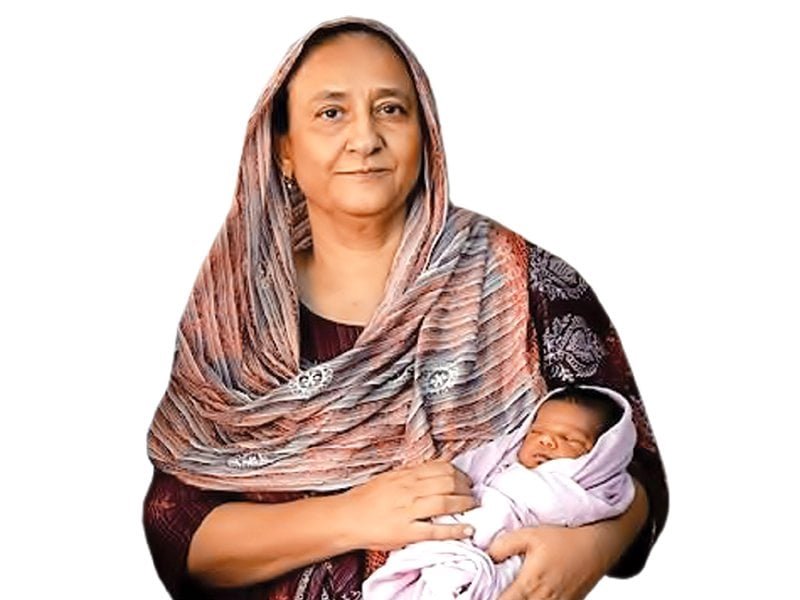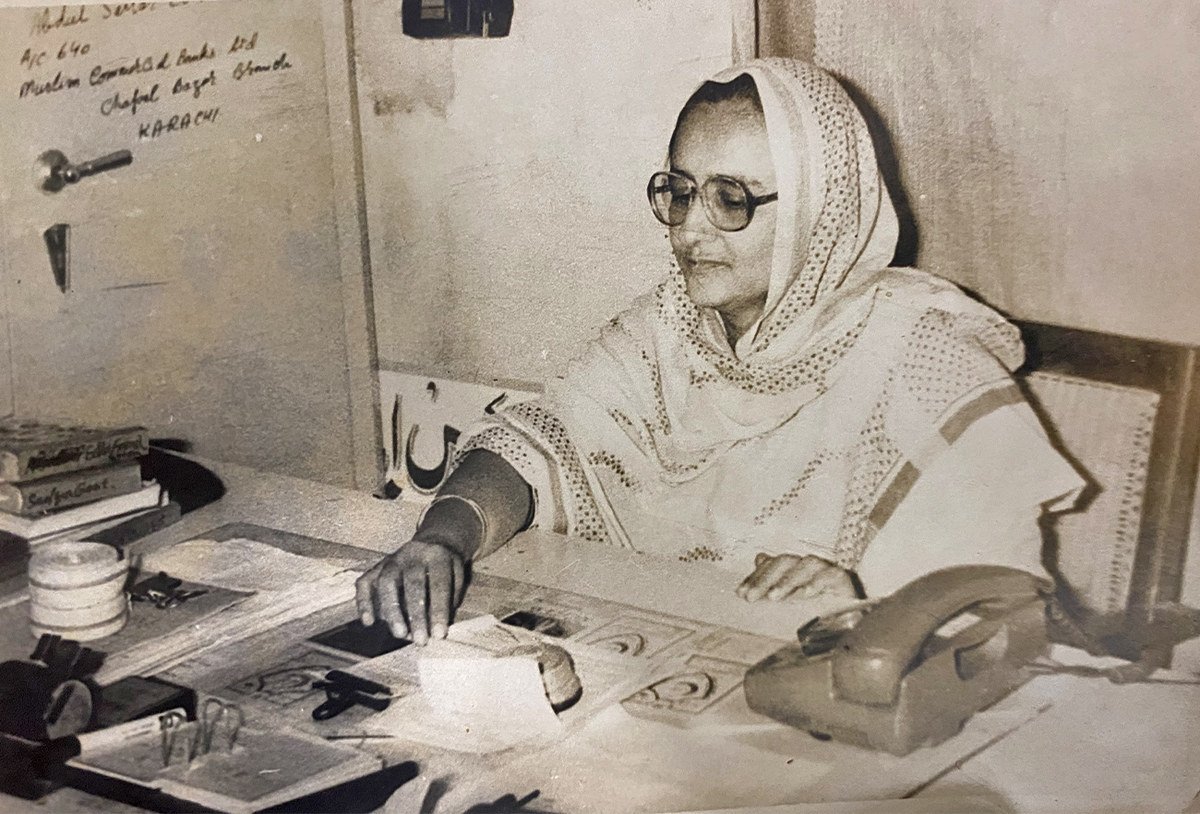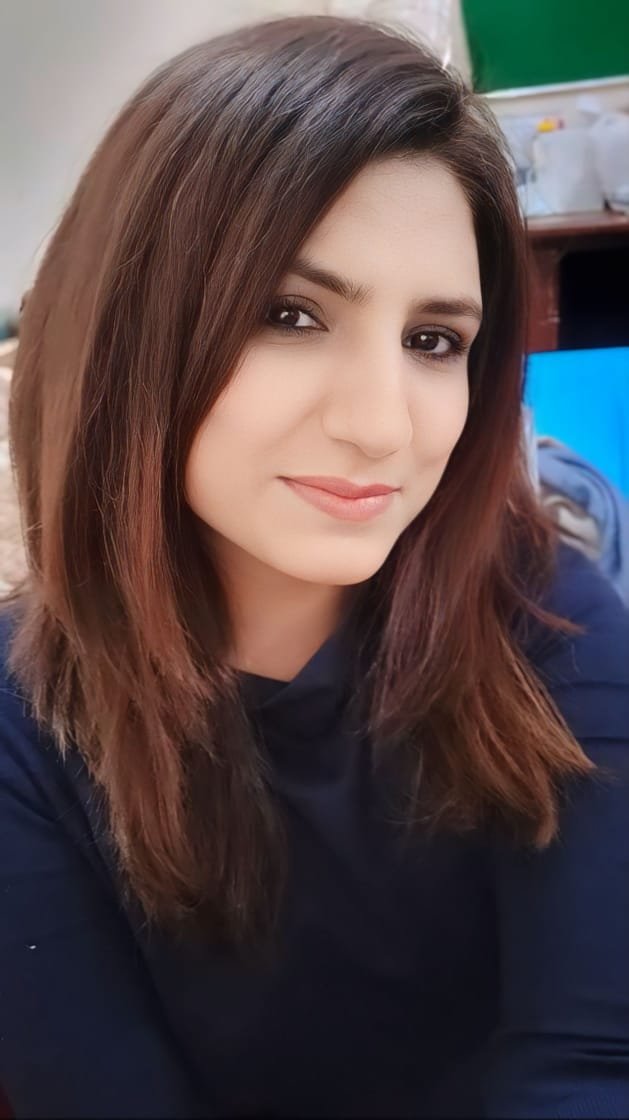
A Guardian of the Abandoned: Bilquis Edhi
In a dark and narrow alley of Karachi, with hot and humid air filled with the smell of rotten garbage and open drainage, a faint cry broke the sinister silence of the neighborhood, a piercing cry from an abandoned newborn left under the debris to die. A tiny and brittle body trembling against the cold and heartless treatment from the world. This cry was a desperate appeal for life, pleading for a chance to live in the world that had already turned its back on it.
A society with rigid norms and deep-rooted stigmas views children, born out of wedlock, as a disgrace and dishonour. Such children are abandoned and many times left to die in the most heart wrenching conditions. The horrifying fact about these abandoned children is that 90% of them are girls[1] or children with special needs. Amidst this callousness, there was a woman who dared to defy the norms, a woman who saw innocence in these abandoned children. She was a beacon of hope in a world shrouded in darkness, a mother to the motherless, and the guardian angel to Pakistan’s forgotten and unloved children. Her name was Bilquis Bano Edhi[2].
Bilquis Edhi was born in 1947 in Bantva, India (now in Gujarat). As a teenager, she did not seem interested in going to regular school and began working as a nurse at a small dispensary in Karachi in 1965. The dispensary was founded by Abdul Sattar Edhi, a giant philanthropist of Pakistan. In 1951, it was located in (name of the city’s oldest area) and primarily staffed by Christian and Hindu nurses. Bilquis, a Muslim, stood out among the recruits. She later married Abdul Sattar Edhi who was twenty years older than her and together they dedicated over five decades to humanitarian work until his passing on July 8, 2016. Bilquis died in 2022.
Bilquis Edhi dedicated her entire life to building the Edhi Foundation along with her husband. She took charge of the Edhi Foundation’s humanitarian efforts with great compassion and grace. Standing like a rock with her husband, Abdul Sattar Edhi, she played a key role in elevating the Edhi Foundation to unprecedented heights. From an initial 6 to 7 bed maternity home, now it is Pakistan’s largest charitable organization providing relief internationally.[1] Edhi Foundation has 300 centers across Pakistan, providing extensive services in emergencies to the general public, burial services to unclaimed dead bodies, a fleet of 5000 ambulances, two private jets and one helicopter to access hard to reach locations. The centre has eight major hospitals providing free medical care , mobile aid and dispensaries, two blood banks and a legal aid department for the poor and undertrial prisoners who cannot afford the expensive judicial system of Pakistan. Edhi centers have commissioned doctors who visit prisons to provide medical aid to poor prisoners. It has 15 shelter homes for destitute children and women. Education and vocational training are also provided to empower unemployed youth and women for livelihood. Bilquis’s role in this expansion was monumental.

She proved that one woman’s compassion can change the fate of thousands. One of her most cherished and iconic accomplishments in partnership with her husband was the installation of Jhoola (an Urdu word for cradle), a baby hatch outside the centers across Pakistan. Bilquis Edhi carried out this mission and saved the lives of more than 16000 abandoned newborn babies. 90% of these children were baby girls or children with special needs. Every cradle outside Edhi center has a message, “Don’t kill, leave the child in the cradle” with a bell, so that whenever someone places an abandoned child in the cradle, the staff from the centre can pick the baby up as quickly as possible. The staff were advised by Bilquis to check the cradle after every 30 minutes so that no child was left unattended for long. Her heart was a haven for the forgotten and rejected, an oasis where children who had been deserted by society found warmth, care, and the promise of a brighter future. This initiative is thought to have significantly decreased the rate of infanticide, reducing the number of infants tragically killed by their parents.[5]
Bilquis Edhi’s work was not without challenges as she hit hard and went against the tide. In a society that often-stigmatized abandoned children, she faced criticism and resistance. She was called an atheist and infidel, many claimed that she and her husband would go to hell for raising kids who were ‘illegitimate’.[6] But she remained resolute and determined in her mission to save innocent lives with the belief that no child deserves to be left to suffer, they deserve a chance to live, to grow and to thrive in this incredibly beautiful world.
Alongside her responsibilities of supervising the feeding, health, and care of newborns, Bilquis Edhi also took charge of managing the Edhi Child Adoption Centre. She established strict criteria for couples wishing to adopt children and personally traveled across Pakistan to monitor the adoption care facilities at various Edhi Centers, ensuring the well-being and proper placement of the children.
For children who were not adopted, the Edhi Foundation provided a lifelong home. Bilquis Bano took on the role of arranging marriages for these individuals, organizing collective wedding ceremonies where many girls and boys raised at Edhi Centers would find life partners. Even after they left the centers, Bilquis maintained a strong maternal bond with these girls, often visiting them and ensuring they felt loved and supported throughout their lives. Her care extended beyond the walls of the Edhi Centers, even beyond borders and beyond religion. A differently abled girl Geeta from India accidently crossed the border and entered Pakistan. Bilquis Edhi hosted her for a decade until she was reunited with her family.[7]
After a prolonged illness, she took her last breath on April 15, 2022, at Aga Khan Hospital in Karachi, succumbing to congestive heart failure. Even in her final days with decaying health she spent her time in the centers among the kids she raised as a mother. She was bestowed with many national and international recognitions and awards, but greatest amongst all is the title “amma”, the mother of Pakistan.
Bilquis Edhi will continue to exist through her infinite love for humanity which will never perish. Every rescued child and every home she built will carry her legacy forward. The compassionate selfless service of her life will continue to serve as an inspiration for generations to come. Her work shines eternally as a symbol of hope and humane values. She was a mother to the forgotten, a guardian of the abandoned, and the heart of Pakistan’s humanity. The world salutes her!
Footnotes:
[1] https://www.geo.tv/latest/192804-female-infanticide-a-growing-threat-in-karachi
[2] The first picture in the article is of Bilquis Edhi
Source: https://tribune.com.pk/story/2281864/bilquis-edhi-declared-person-of-the-decade
[3] https://edhi.org/international-activities/
[4] (AN Grab from Edhi’s family photo album)
References:
- Bilquis Bano Edhi – Edhi Welfare Organization
- Bilquis Edhi – Wikipedia
- Bilquis Edhi
- Mother of orphans, unwanted children, Bilquis Edhi dies
- Bilquis Edhi, philanthropist in her own right, carries on beloved husband’s legacy
- Pakistani philanthropist Bilquis Edhi passes away at 74
- Pakistan: Bilquis Edhi who spent her life serving suffering humanity along with her husband dies
- Exclusive Interview: Bilquis Edhi – 2020 – YouTube
- Tum Jo Chaho Tu Suno | Bilquis Edhi in conversation with Moneeza Hashmi | Interview | Pakistan
(The views expressed in this article are the author’s own. Content can be used with due credit to the author and to ‘Zariya: Women’s Alliance for Dignity and Equality’)

Sobia Batool Shah is a dedicated development practitioner from Pakistan with 15 years of experience in peacebuilding and conflict resolution, focusing on advancing human rights for marginalized groups, including religious minorities and women. Her work centers on women’s empowerment, promoting freedom of religion and belief, fostering interfaith harmony, and advocating for policy reforms that safeguard religious freedoms and combat gender-based discrimination. She has led and contributed to impactful initiatives aimed at raising awareness, countering religious intolerance, and addressing conflicts arising from religious discrimination, with a special focus on women and youth. Sobia holds a Master’s degree in English Language and Literature from the National University of Modern Languages, Islamabad.



